Aircraft carrier USS Gerald R. Ford is the most expensive warship in the world. It is more than 330 meters long and cost $13 billion (€11 billion) to build. The giant ship and its escort ships are currently bound for the Caribbean on the orders of US President Donald Trump. It has dozens of fighter jets and helicopters, and will provide support to US ships and units already deployed in the area.
The official US line is that the enemy here is the international drug cartels who smuggle their goods into the US by boat. Trump recently described these cartels as the “IS of the Western Hemisphere”, referring to the extremist Islamic State, or IS, group. Since August this year, the US has executed dozens of people in the Caribbean without providing any evidence that they were involved in the drug trade.
In late October, the US Secretary of Defense, Pete Hegseth, whom Trump later named “Secretary of War”, announced that four smuggling boats had sunk in the eastern Pacific, and 14 people were killed. International law experts have raised serious concerns about the legality of these actions.
However, the US Congress has essentially given Trump a free hand. Senate Republicans blocked a bill from Democrats that would have required legislative involvement in approving military strikes against the cartels.
“This is a significant deployment,” says Christopher Hernandez-Roy, a Americas expert at the Center for Strategic and International Studies (CSIS), an American think tank. “We haven’t seen anything like this in a generation,” he told DW. “For an anti-narcotics operation, this is much bigger than anything we have seen before.”
It seems logical to conclude that this armada is not just targeting smuggling boats. The concerns of the southern Caribbean countries are increasing.
What is Trump really planning?
The focus has been primarily on oil-rich Venezuela. For several years now, the US has been sharply critical of its ruler Nicolas Maduro. Washington says the elections that returned Maduro to power in January 2025 were fraudulent, and it refuses to recognize him as a legitimate leader.
In August this year, Trump doubled the reward for information leading to Maduro’s arrest. The amount has now risen to $50 million – twice the amount given for Osama bin Laden, the head of terrorist group al-Qaeda. According to Hernandez-Roy, Trump believes that “Venezuela is run by a drug cartel, and Nicolas Maduro sits at the top of that cartel,” which also includes parts of the Venezuelan military.
The United States orchestrated regime changes in several Latin American countries in the 20th century, most recently in Panama in 1989. Earlier this month, Trump approved a covert CIA operation in Venezuela. Some US warships are also currently conducting military exercises near the island state of Trinidad and Tobago – on Venezuela’s doorstep.
“It is at least logical to suspect that in addition to fighting drug trafficking, the Trump administration has political reasons for this military buildup,” Sascha Lohmann, a political scientist at the German Institute for International and Security Affairs (SWP), told DW. It’s clear, he says, that this goes beyond the so-called war on drugs. “But at the same time, it is not clear to what extent they are actively pursuing regime change.”
Lohman speculated that Trump would certainly be happy if Maduro’s removal from office occurred as a byproduct of the operation. “Resources certainly play the most important role, both fossil fuels and other raw materials are essential to accelerate the technology race, especially where China is concerned.”
Along with oil, Venezuela also has large reserves of gold, iron, bauxite and coltan. Earlier this month, new York Times Trump was reported to have rejected Maduro’s offer of preferential access to Venezuela’s natural resources.
How is Latin America responding?
Maduro himself has accused the US of “hostile provocations against Venezuela and posing a serious threat to the peace of the Caribbean”. He presented himself as a guarantor of peace, but at another point he also mentioned his army had “not less than 5,000” short-range missiles. Maduro has also ordered military exercises to avoid attacks on the coast.
The US also recently imposed sanctions on President Gustavo Petro of neighboring Colombia, accusing him of collaborating with drug cartels.
Marcela Donadio, Executive Secretary of the Latin American Security and Defense Network (RESDAL), comments, “I doubt that Latin American countries will all react in the same way.” “Not only is the region divided, each country has many of its own domestic issues to deal with.”
For example, Brazil is currently moving cautiously toward finalizing a new customs agreement with the US. Trump has launched a fierce attack on Brazil’s justice system and imposed high punitive tariffs on the country after its former President Jair Bolsonaro was found guilty of plotting a military coup in an attempt to stay in power.
Donadio told DW that he hopes powerful countries like Chile, Mexico and Brazil will launch a joint initiative to mediate in the current crisis: “Because intervening in Venezuela would have serious internal consequences. A government appointed by an outsider is not the best political solution, even if the opposition won the Nobel Peace Prize,” Donadio says.
This is a reference to opposition leader María Corina Machado, who has said that she dedicates her award to the Venezuelan people and Donald Trump. Machado has a powerful advocate in US Secretary of State Marco Rubio.
If Trump goes to war, can he become a ‘President of Peace’?
It’s no secret that Trump wants to win the Nobel Peace Prize. But can the self-proclaimed “President of Peace” justify such a military operation?
The SWP’s Lohman recalls that activist and Trump ally Charlie Kirk had spoken very positively about the beginning of the military deployment to the Caribbean in September, just before his assassination. “What this means is that even here, it’s not at all clear whether people at the grassroots level are actually against it,” Lohman says. “At least, unless it results in the US being stuck there somehow, with troops on the ground, or some other military intervention.”
There is certainly support in Trump’s camp for a foreign policy concept best described as a new version of the 1823 Monroe Doctrine. At the time, James Monroe, the fifth President of the United States, warned European colonial powers against challenging American claims to hegemony in the Western Hemisphere, particularly the Americas, the Caribbean, and Greenland.
Earlier this year, Trump threatened to potentially annex Greenland. In an increasingly multipolar world, some followers of Donald Trump see “Monroe 2.0” – aka “Donroe” – as a US foreign policy concept in tune with the times.
Lohman sees “Donro” as describing a new way for America to behave with its neighbors: “It is no longer about keeping foreign influences out of the Western Hemisphere, but about expanding the influence of the United States in an almost imperial manner in the Western Hemisphere – especially in Latin and South America, rewarding political leaders who behave well toward America, and punishing others who are critical and rebellious.”
Victoria Dannemann (DW Spanish), and Lisa Hanel, Grzegorz Szymanowski, and Annekatrin Utke (Mappedout) contributed to this article, which has been translated from German.
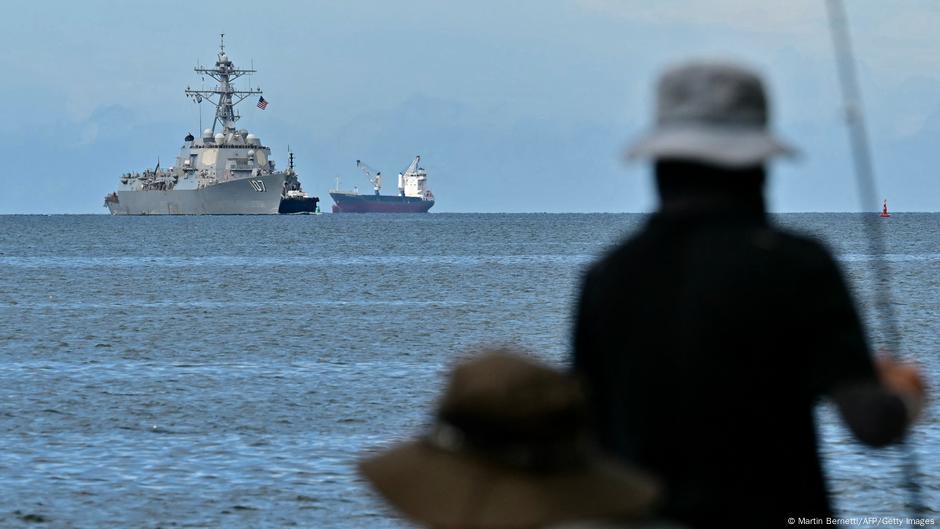
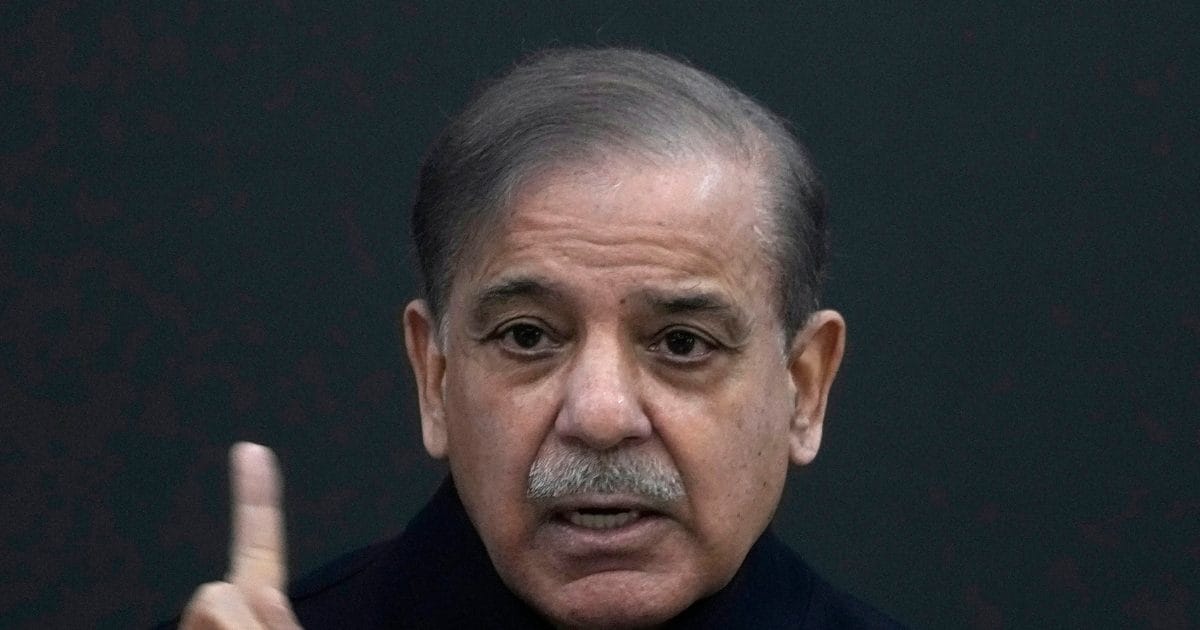
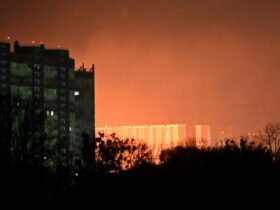
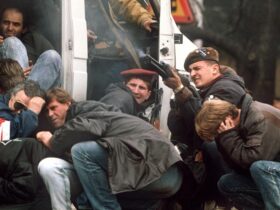
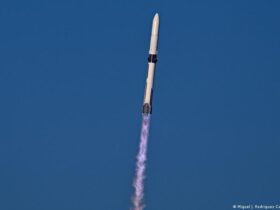
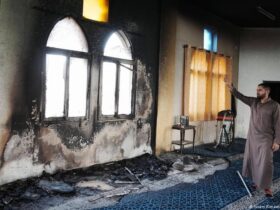
Leave a Reply